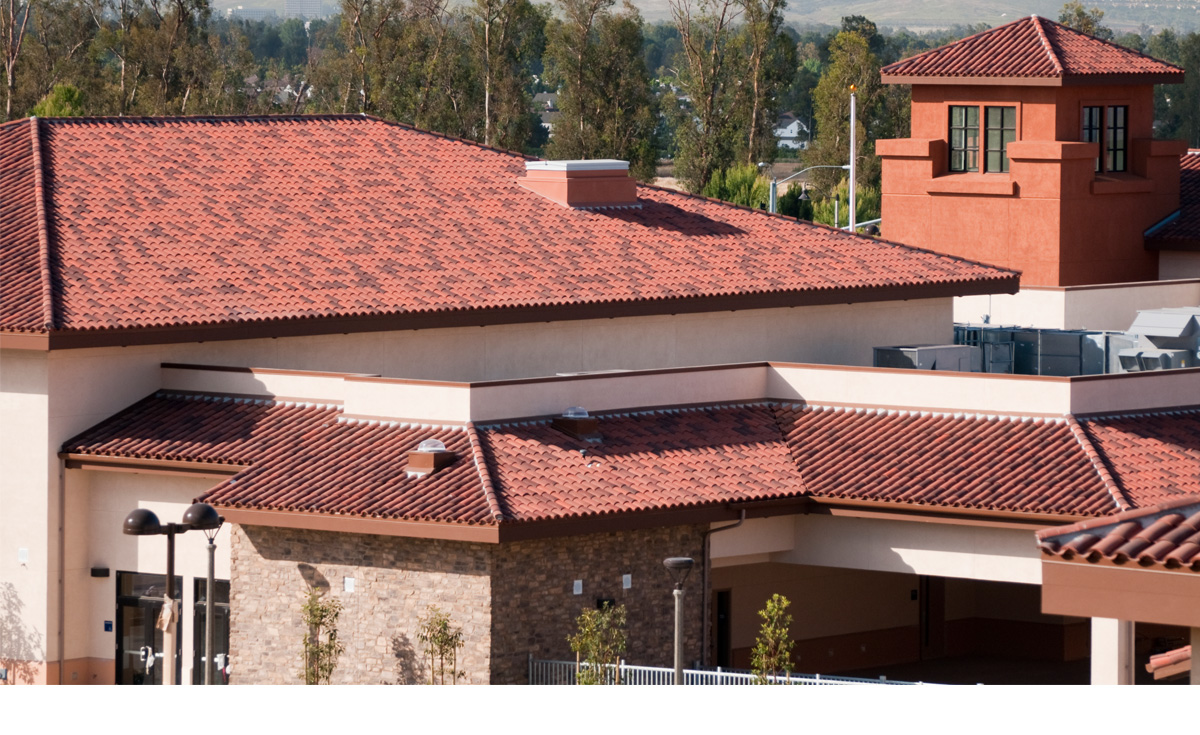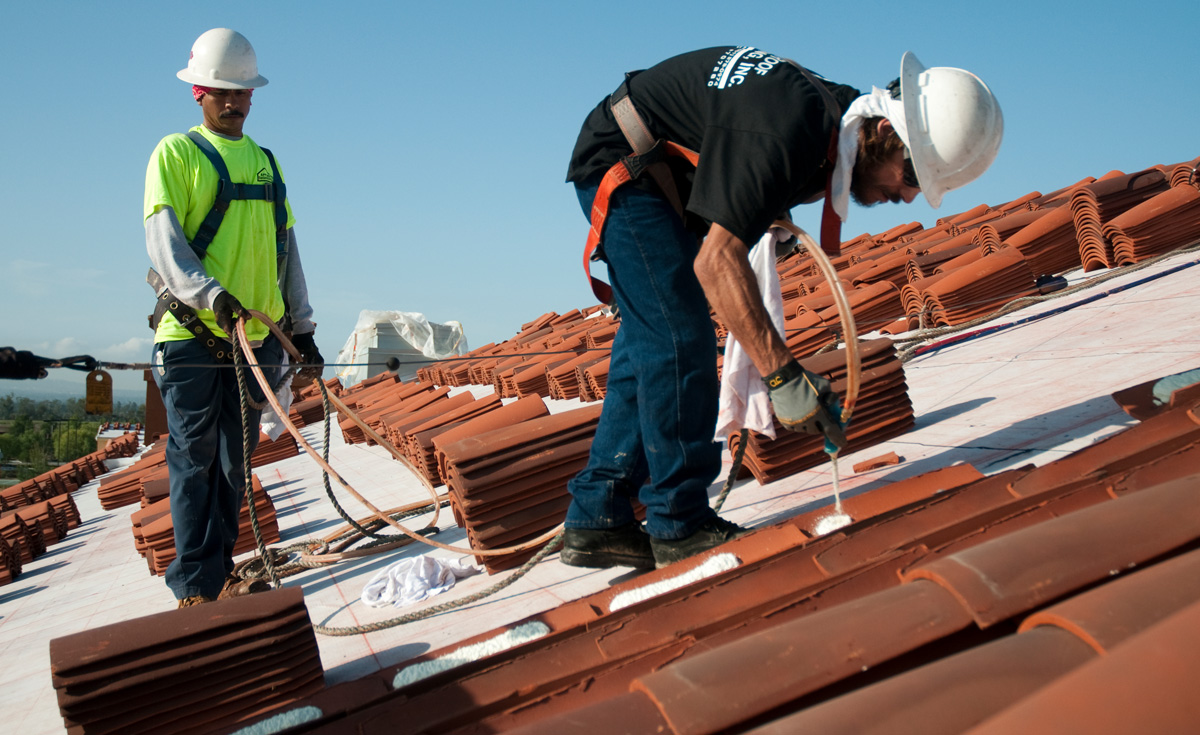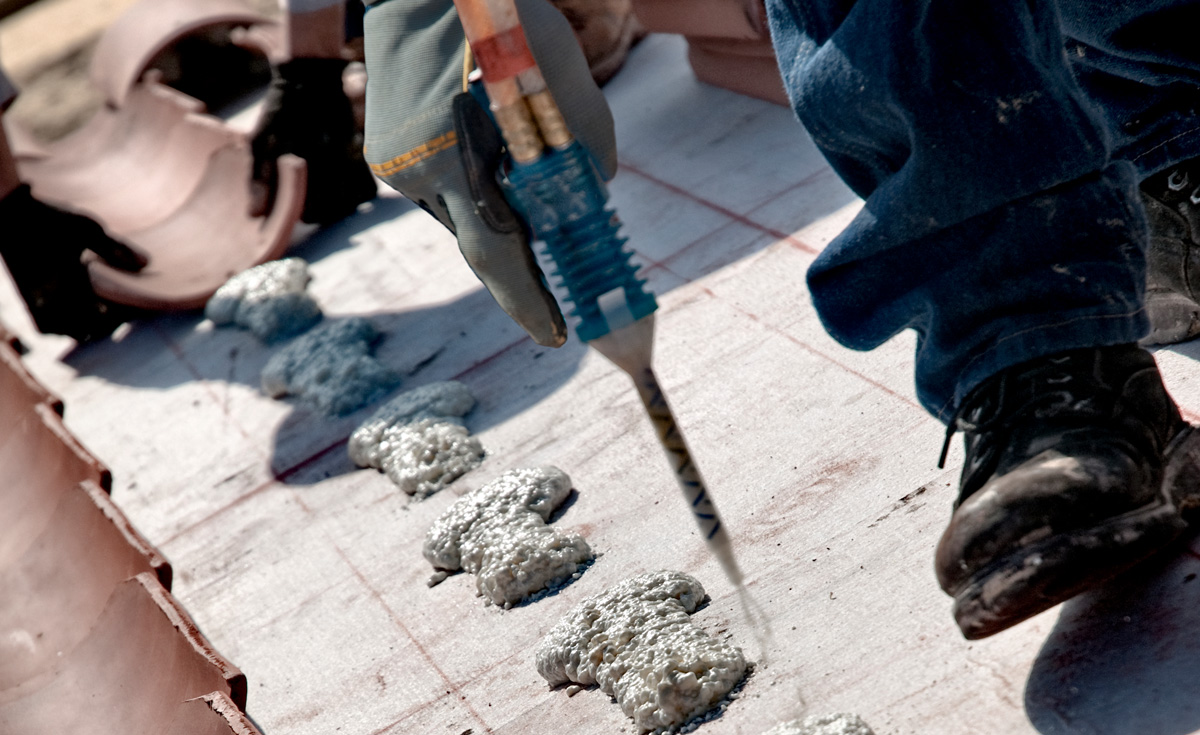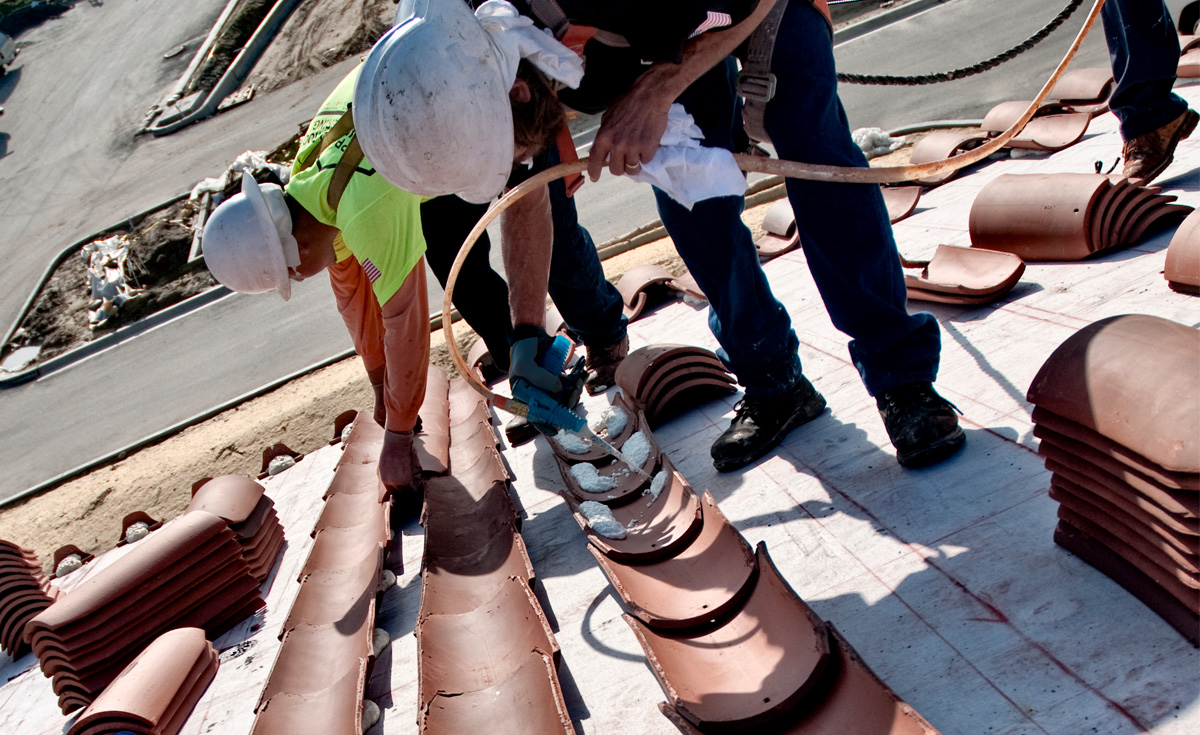Polyset ® AH-160 2-Component Roof Tile Adhesive
2-Component Roof Tile Adhesive Polyset ® AH-160 is the professional roofer’s complete solution for concrete or clay roof tile attachment. 2-Component Roof Tile Adhesive Polyset ® AH-160 is a polyurethane adhesive that adheres each individual tile in place.
- 4.2 R Value
- Reduces attic heat buildup
Virtually eliminates nail penetrations
Eliminates need for elevated or counter battens
Increases wind resistance by 50-100% compared to nails, screws, mortar, counter/elevated batten or wire tie systems
Minimizes tile installation damage associated with mechanical fasteners
Superior hip and ridge attachments
Ideal for use on schools and other essential facilities
Easy to repair
- ICC-ES Report ESR-1709
- DSA IR 15-2
- Class A Rated, ASTM E108
- TRI Approved
- Miami-Dade County NOA No.16-0315.01
- Florida Building Code
- Texas Dept. of Insurance Evaluation RC-22
Click on the following links to view reports in PDF format:
ICC-ES Report ESR-1709
Miami-Dade NOA-16-0315.01 AH-160
Miami-Dade NOA-16-0315.03 RTA-1
SDS Polyset AH-160 A-side Propack 100’s
SDS Polyset AH-160 B-side Propack 100’s
SDS Polyset RTA-1
TDI Approval Polyset AH-160 RC-22
How to Win
How to Win Prevailing Wage Projects Using Clay Roof Tile
by Claire P Davidson, freelance construction writer
 Several case studies have shown that when it comes to prevailing wage projects, the selection of materials is crucial in order to win the bid. Providing he has the proper bonding, financials, and other qualifications, it is usually the lowest bidder that gets the job. Selection of material is key in allowing the contractor to provide the lowest bid possible and win the bid.
Several case studies have shown that when it comes to prevailing wage projects, the selection of materials is crucial in order to win the bid. Providing he has the proper bonding, financials, and other qualifications, it is usually the lowest bidder that gets the job. Selection of material is key in allowing the contractor to provide the lowest bid possible and win the bid.When it comes to clay roof tile, reducing installation costs is essential in order to provide a low bid. Most state projects call out for generic clay roof tiles and do not usually specify a manufacturer; but all clay roof tiles are not made the same. For example, many leading U.S. manufacturers on the West Coast including MCA Clay Roof Tile, US Tile, and Gladding McBean, produce a two-piece clay roof tile. However, the number of pieces per square varies by manufacturer. This is an important factor when bidding a prevailing wage project. Selecting the best quality tile that will provide the most labor savings is critical to winning the bid. In the case of a twisted wire attachment system, the number of tile pieces per square can have a major impact on the time it takes to install the tile. The more pieces per square, the more time it will take to install. With a minimum of three or four revolutions of each wire, twisted wire has to be installed one at a time, piece by piece. This results in a tedious, very time consuming install that causes labor costs to soar.

Consider contractor A: He chooses a two-piece tile that has 172 pieces per square. On a 1,000-square project, he will install 172,000 pieces, twisting each wire, one by one, as he moves along the roof, consuming time and eating up the labor budget. His bid reflects substantial labor costs. Now consider contractor B: He chooses a two-piece clay tile with 150 pieces per square. With fewer pieces per square, he will only need to install 150,000 pieces on the same project. He is installing 22,000 pieces less than roofer A. This means tremendous labor savings over roofer A. He is able to submit a lower bid and win the project.
To speed up installation further and win a bid on a prevailing wage project, roofing contractors may choose to install with one of several new and innovative adhesive products on the market. The time-consuming and labor-intensive task of twisted wire tying can be completely eliminated. Installation with an adhesive such as Polyfoam cuts labor time by approximately 70% according to the manufacturer.
 So, on prevailing wages jobs, selection of the right materials cannot be overstated. Case in point: Orchard Hills K-8 school in Irvine, California. This Title 24, 1100 square project was originally specified for two-piece mission terra cotta clay tile with a tiewire attachment system on a nonnailable deck. However, the final solution was the two-piece tile with the least number of pieces per square. Manufactured by MCA, the Corona Tapered Mission tile has only 150 pieces per square, making it a true labor saver.
So, on prevailing wages jobs, selection of the right materials cannot be overstated. Case in point: Orchard Hills K-8 school in Irvine, California. This Title 24, 1100 square project was originally specified for two-piece mission terra cotta clay tile with a tiewire attachment system on a nonnailable deck. However, the final solution was the two-piece tile with the least number of pieces per square. Manufactured by MCA, the Corona Tapered Mission tile has only 150 pieces per square, making it a true labor saver.With construction underway, the decision was made to use a two-part adhesive to secure the clay roof tile. Selecting the right materials made for a quick installation and drastically reduces labor costs. According to roofing contractor, Joe Aceves, vice president, Applied Roof Engineering in Corona, California, who installed the tile, “Simply put, when you reduce the number of pieces, you speed up the installation and reduce labor costs. When you combine this with a two-part adhesive installation, the labor savings are tremendous, especially on a prevailing wage jobsite.” Aceves concludes, “When savings are reflected on the bid, and passed on to the customer, everybody wins.”

El Sereno Middle School, Los Angeles, California, is another example of labor-saving product selection on a Title 24 project. Selecting the same two-piece clay roof tile gave the school the beauty and classic look of timeless clay tile while keeping labor costs at a minimum. “One of the biggest challenges facing roofing contractors when bidding a prevailing wage project is selecting a grade 1, high-quality product to install and still remain competitive, and more importantly, profitable,” comments Jim Adib, senior estimator and purchasing manager, Best Contracting, Gardena, Calif. “We’re always looking for an advantage over our competitors, so we chose MCA’s Corona Tapered Mission tile. This gave us the competitive edge. With less pieces per square, the labor time saved was comparable to installing a considerably less number of squares than with other manufacturers’ products.” He adds, “We substantially reduced labor costs and were able to secure the winning bid.”
A roofing contractor must do his homework to weigh the pros and cons of the various products. Choosing the tile that will provide the best quality while saving the most labor costs is critical to winning the bid. Labor-saving products can mean the difference between winning a prevailing wage project and losing one.















